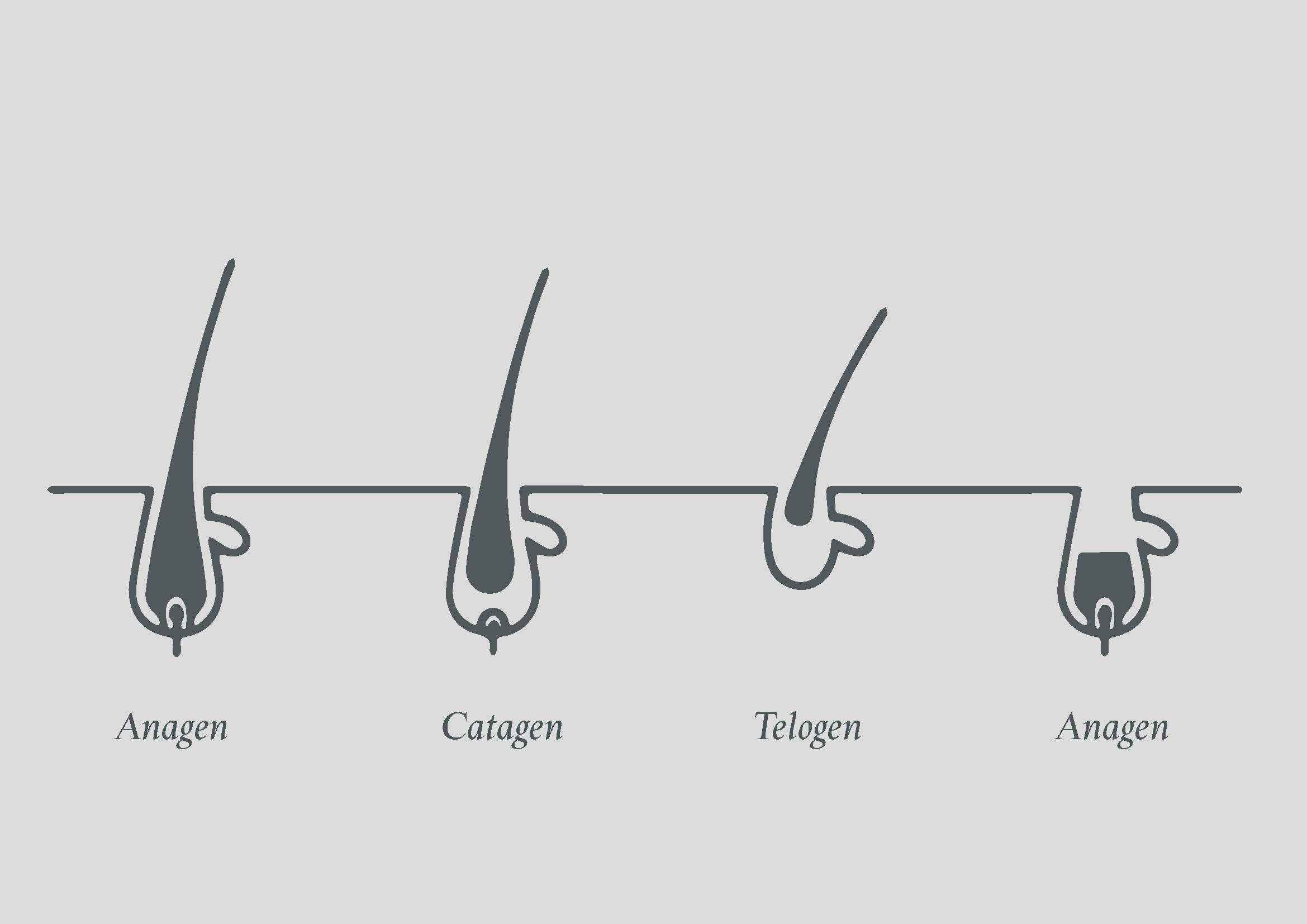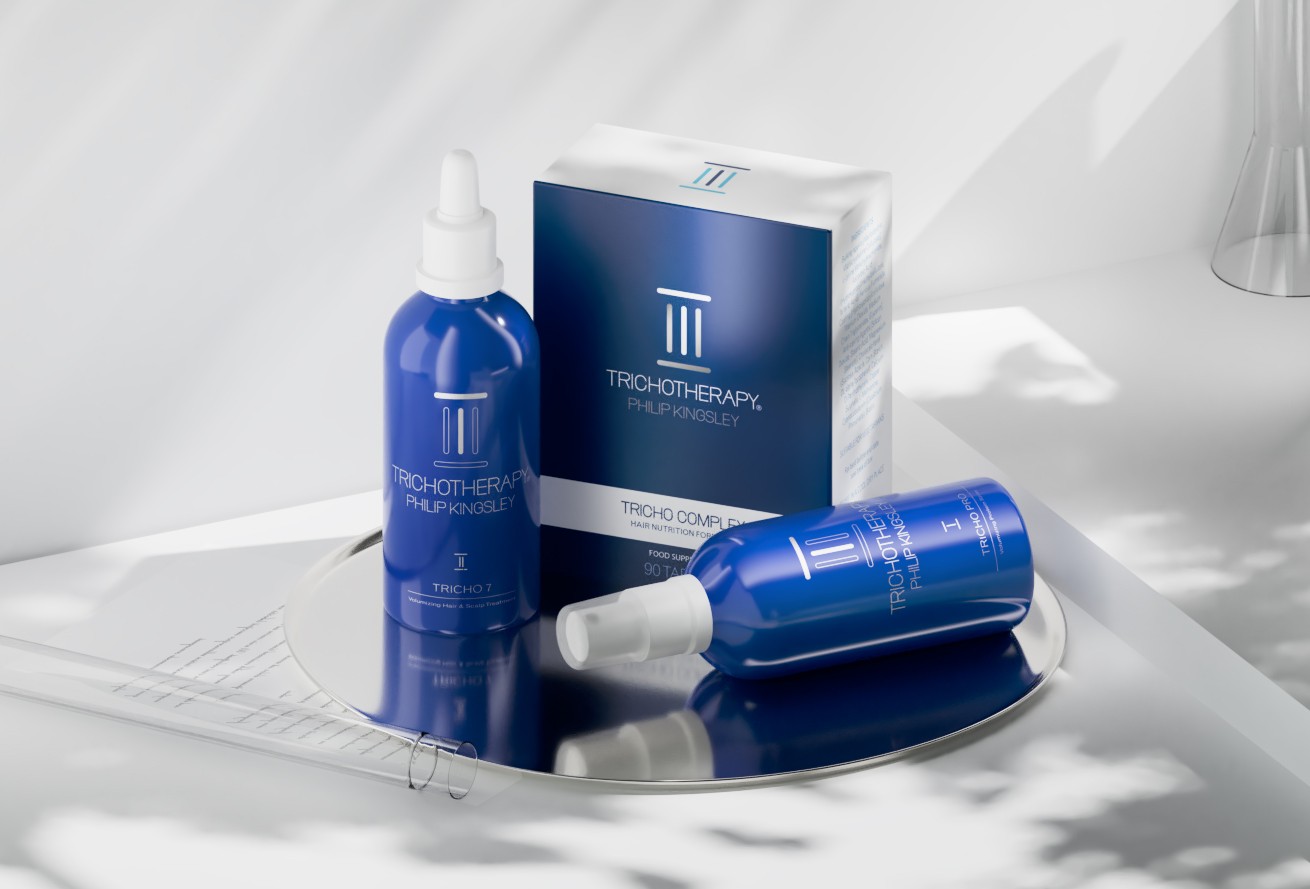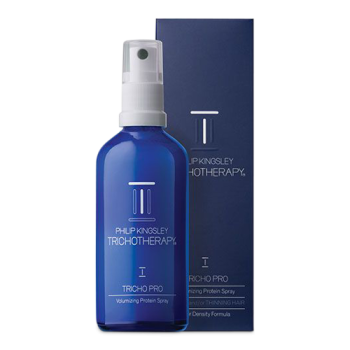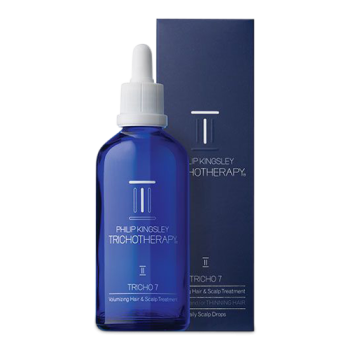Telogen Effluvium

Anabel Kingsley
Brand President
What Causes Telogen Effluvium?
Telogen effluvium occurs when the anagen (growth) phase of the hair growth cycle is cut short by an internal disturbance in your body. This causes many more hairs than usual to move from their anagen phase into their telogen (shedding) phase, resulting in excessive daily hair fall.
On average, it is normal to lose up to 100 hairs a day, provided they are growing back. However, telogen effluvium can result in as many as 300 hairs being shed in a 24 hour period.
Telogen effluvium can be either acute (short-term) or chronic (recurring / continuous) depending on the cause and the severity of the disturbance to your system. Due to the nature of the hair growth cycle, hair loss usually takes place 6 – 12 weeks after the event, illness or medication that triggered it, so you may not always connect the two. If you notice excessive hair shedding, look back two or three months for possible causes.

Telogen effluvium can be extremely distressing when you are experiencing it, but rest assured that this type of hair loss is temporary.

Potential triggers of telogen effluvium include [but are not limited to]:
Crash dieting
Medications
Hormonal contraceptives (including the pill)
Stress
A high fever
Stomach flu
Thyroid conditions
Iron deficiency
Ferritin (stored iron) deficiency
Protein deficiency
Shock or emotional trauma
Rapid weight loss
Eating disorders
Pregnancy
How do You Treat Telogen Effluvium?
Telogen effluvium is a temporary type of hair loss. Rest assured that your hair will almost certainly grow back once the underlying issue has been resolved. Feel free to continue shampooing, conditioning and styling your hair as normal. These things will not cause or worsen shedding.
Your treatment will depend on what exactly is causing the telogen effluvium.
At Philip Kingsley, our Trichologists will look into all aspects of your medical history and lifestyle to help discover the causes. We recommend blood tests to give us as detailed a picture of your health and nutrition as possible.
Telogen effluvium resulting from trauma or short-term illness, such as a high fever or stomach upset, will usually resolve itself in around three months.
However, chronic telogen effluvium can last as long as the cause remains unresolved. Telogen effluvium due to nutritional deficiencies can often be simply treated with changes to your diet, and nutritional supplements such as our specially formulated Tricho Complex and PK4 Soya Protein pills.

Other causes, such as thyroid conditions, need to be treated with appropriate medications and, potentially, lifestyle changes.
Philip Kingsley TRICHOTHERAPY®
It is always a good idea to visit a Trichologist if you are experiencing telogen effluvium, so that we may diagnose it correctly and help you identify the cause.
We know, however, that regrowth of hair can take time — so for people who wish to have immediately thicker-looking hair, our Trichologists developed the award-winning TRICHOTHERAPY® range. This highly effective regime targets thin hair, fine hair and shedding, while helping to strengthen your strands and reduce breakage.
Our customer results have been outstanding. In independent user trials, 79% of women found their hair looked and felt fuller after 12 weeks of using Trichotherapy. Watch our video here to learn more.
If you are worried about any form of hair loss, our Clinics in London and New York specialise in all aspects of hair and scalp health, and will be pleased to welcome you.
Recommended Products
To learn about other types of hair loss, please click through to one of the following pages:







